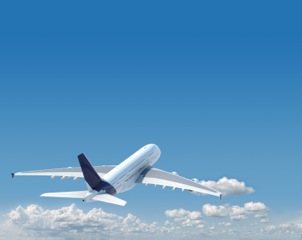How to Deal with Allergies While Traveling

Summer is officially here, the heat is on, and you may have travel plans coming up. The last thing anyone wants on their vacation is for allergies to put a damper on the fun. If you generally have sinus issues, asthma, or are sensitive to dry air, you are probably already familiar with the typical travel discomforts—hotel stays, long plane flights, and driving with the AC on. The best way to avoid unwanted allergies during your trip is do some research in advance and come prepared. There are many internet sites where you can check the weather, pollen, and air quality forecasts so you will have an idea whether your allergies may flare up before you get there. Within the continental United States, weather.com, provides all this information.
When considering what to pack for your allergies, the size of luggage and airport security regulations can be a hindrance. I’m quite a heavy packer myself and having to pack additional items for my allergies is always a pain; however, I rather take precautions than suffer on my trip. Some handy things to bring are saline nasal spray, a sinus rinse bottle or neti pot with enough saline mixture packets to last you the entire trip, and any over-the-counter or prescription medications you normally take for allergies.
Traveling by Plane
If you are flying to your destination, packing liquids is difficult because of the TSA three ounce (100 mL) restriction, especially if you plan to carry-on all your luggage; however, there are plenty of allergy-relief products that have made sizes to accommodate plane travel. The dry air on the airplane can cause a lot of discomfort, but using a saline nasal spray helps alleviate this dryness. I also recommend staying hydrated and drinking plenty of fluids.
If you have sinusitis, a cold, or sinus infection, air travel can be extremely painful because of blockages in the nasal passages. The pressure in your sinuses has to equilibrate with the air pressure, which is why some people, especially babies and children, often experience pain in their ears during take-off and landing. Your sinuses will not be able to adjust to the cabin pressure and this build up of pressure can cause a lot of pain. Some people experience vertigo (dizziness) or ringing in the ears as well. Some ways to deal with this are chewing gum, drinking fluids, and swallowing often. The best way to prevent the excruciating pain that often occurs when flying with congestion is to avoid flying during that time; however, rarely would this ever be possible, so use over-the-counter decongestants or medicines your doctor may have prescribed if you have an infection prior to flying.
NeilMed offers several airport-friendly options, including the NasoGel® Drip Free Gel Spray, NasaMist® Saline Spray, and NasaDrops® Saline on the Go™. For my upcoming trip abroad, I plan to take the NasoGel® Spray for the dry air on the plane. The NasaMist® Saline Spray is also good for some quick moisture in the nose. If you want something that will give you more of an irrigation, try the NasaDrops® Saline on the Go™. They are also especially useful for babies and small children because you can use this as an irrigation system for them and they come in convenient single-use ampules.
I will also bring along my Sinus Rinse bottle and refill packets in my check-in luggage to use in the hotel room; however, if you are very congested, you can always bring along your Sinus Rinse bottle or Neti Pot with your carry-on items to use in the restroom.
Traveling by Car
Running the AC in the car can blow dust and mold allergens from inside the vents. If you open the windows and run the AC for ten minutes before getting in the car, this may help. Driving with the window in also lets allergens from outside, so you should keep them shut and keep the AC setting to inside circulation so to keep the outside air from coming in the car.
Hotels
When staying in hotels, there are often dust mites and mold that cause allergic symptoms. You may want to bring plastic covers for the pillows or ask the hotel for hypoallergenic pillows. The dry air in hotels can be an irritant too. It is often helpful to fill the bathtub with water to increase the humidity in the air or you can run the shower with hot water for several minutes to create steam. You should also use a saline-based gel to lubricate your nose.
(10598)